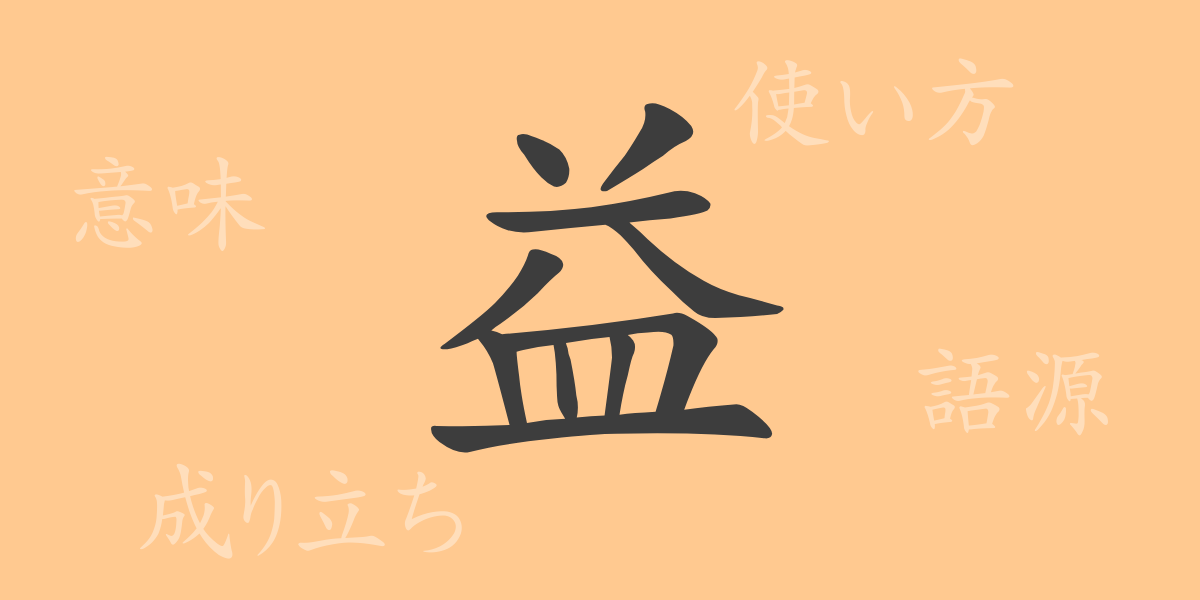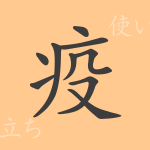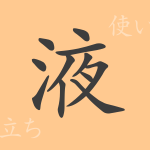“
The meaning and history behind a single kanji character speak to the richness of Japanese culture and language. “”益”” (Eki) is one of the commonly used kanji, found in contexts ranging from business to everyday conversations. Its shape, symbolizing benefit, and its deep meaning are closely connected to our lives. In this article, we will unravel the full picture of this fascinating kanji, from its origin to its meaning, usage, and even related compound words and proverbs.
The Origin of 益 (Eki)
The kanji “”益”” is a character that originated from ancient China, with its roots as a pictograph. Originally, it had a shape of three overlapping mouths, which later transformed into the form of “”益””. This shape represents the idea of something increasing through accumulation, and it eventually came to mean the increase of things. In ancient Chinese literature, “”益”” was used to convey meanings such as benefit and increase, and its usage has continued to the present day.
The Meaning and Usage of 益 (Eki)
“”益”” is a kanji that originally meant increase or benefit. It can refer to economic profit or non-material “”benefits”” such as the improvement of health and welfare. In modern Japanese, this kanji is often used with the meaning of “”profit”” or “”bringing benefit,”” not only in business contexts but also widely in daily life.
Reading, Stroke Count, and Radical of 益 (Eki)
Let’s also take a closer look at the reading and structure of the kanji “”益””.
- Reading: The on’yomi reading is “”えき”” (Eki), and the kun’yomi reading is “”ます”” (Masu).
- Stroke Count: 10 strokes in total.
- Radical: 皿部 (Sarahen, utsuwahen).
Compound Words, Idioms, and Proverbs Using 益 (Eki) and Their Meanings
There are numerous compound words, idioms, and proverbs that include “”益””, each with its own unique meaning and usage. For example, “”利益”” (Rieki) refers to economic profit, while “”益々”” (Masumasu) is synonymous with “”increasingly”” and represents the continuous increase of things. In the phrase “”損得勘定”” (Sontoku kanjou), “”得”” (Toku) represents “”益””, meaning to gain profit. Additionally, “”益友”” (Ekiyuu) refers to a friend who contributes to one’s personal growth. These compound words and idioms add depth and richness to Japanese expressions.
Conclusion on 益 (Eki)
Through this article, you may have gained an understanding of the multilayered meaning of the kanji “”益”” and its importance in the Japanese language. “”益”” is a character that symbolizes not only economic benefit but also positive influences in life as a whole, blending into our words. As a common kanji in Japanese and as seen in many compound words and proverbs, its usage will undoubtedly continue to expand in the future.
“

























